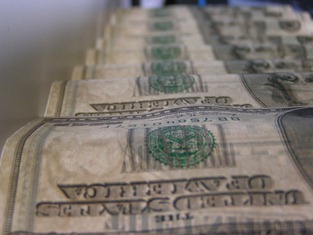 From time to time I read great books, articles published by respected economists, research analysts, and financial periodicals. In my opinion the "everyday investor" is really being forgotten. My rationale for this conclusion stems from the fact that finance is an Achilles heel for eighty five percent of the people in our country. Couple that with widespread bad news, irresponsible reporting and media scare tactics, and who would ever invest in this market?
From time to time I read great books, articles published by respected economists, research analysts, and financial periodicals. In my opinion the "everyday investor" is really being forgotten. My rationale for this conclusion stems from the fact that finance is an Achilles heel for eighty five percent of the people in our country. Couple that with widespread bad news, irresponsible reporting and media scare tactics, and who would ever invest in this market?
With that in mind, I will start to bring to you educational and relevant information that will allow the everyday investor to think, challenge themselves to gain a better understanding of investing as well as learn about the pitfalls and rewards associated with it. If you are not currently an investor, you should be. If you are currently investing and feel like you lack direction, pay attention and hopefully I will be able to provide you with confidence to find your way.
One of my favorite economists is Brian Westbury, author of "It's Not as Bad as You Think: Why Capitalism Trumps Fear and the Economy Will Thrive." The author tightly makes the case that the current financial crisis was totally unnecessary. He states that its prime cause was the imposition of mark-to-market accounting rules. "History shows that the government has made some pretty big bloopers, but perhaps none have been larger than allowing the Financial Accounting Standards Board to start enforcing a very strict mark-to-market accounting rule in late 2007. The rule forced banks to book losses that had not yet occurred even for securities that the banks were willing to hold. Then many of those losses were forced to run through the balance sheet, which reduced regulatory capital. This pushed banks into insolvency or capital violation, despite the fact that cash flow was still sound. Within a year, the U.S. was in the middle of the worst pure financial panic in 100 years. Coincidence? Absolutely not. Every government program put in place during the crisis was an attempt to work around mark-to-market accounting. [It] chased private capital away."
When this crazy rule, thanks to Congressional pressure, was amended in early 2009 the panic ended, and the stock market roared back, led by banks and insurance companies.
In 2007 it was fancy accounting and now we are at another crossroads with the nation's debt ceiling. Should we raise it or not? How will we reduce the nation's deficit and more importantly how and where will we collect the revenue to remedy our countries lack of financial responsibility. Our government is once again faced with key decisions that need to be made around the structure of our financial system. I hope they get it right this time. Here are some key items to note:
The U.S. manufactures more today than ever before (46 percent more than China). We have traded T-shirts for BMW X3's made in South Carolina.
The U.S. is a major player in world energy with the largest natural gas reserves, and there's more oil in North Dakota fields than Saudi Arabia.
U.S. companies are cash rich and hoarding cash. Although they are not paying dividends this means future potential investments in equipment and technology.
Foreclosures are a non-issue with 5 states dominating them and they are showing improvement.
Personal consumption is the highest ever in this country; every $1 earned is spent by you, the bank if you save it, or the government through tax collection.
Farming used to be done with horse and plow; now it's done with a tractor. In the 1800s not much changed, but in the last 200 years everything did.
Can the budget be balanced? The U.S. produces $15 trillion in revenue, has $14 trillion in debt and $1.5 trillion in assets. The U.S. makes a 10 percent return on investment. If your father or mother passed you down a business with a 10 percent ROI, would you take it? Yes, and you would be filthy rich. We are in good shape and hopefully our politics can keep us that way.
Louis Taylor is president and senior financial advisor of Lake Oswego, Ore.-based TWM Wealth Management. Reach him at louis@twmwealthmanagement.com or on the web, www.twmwealthmanagement.com
- Home
- News
- Opinion
- Entertainment
- Classified
- About Us
 MLK Breakfast
MLK Breakfast- Community
- Foundation
- Obituaries
- Donate
04-18-2024 10:53 am • PDX and SEA Weather










